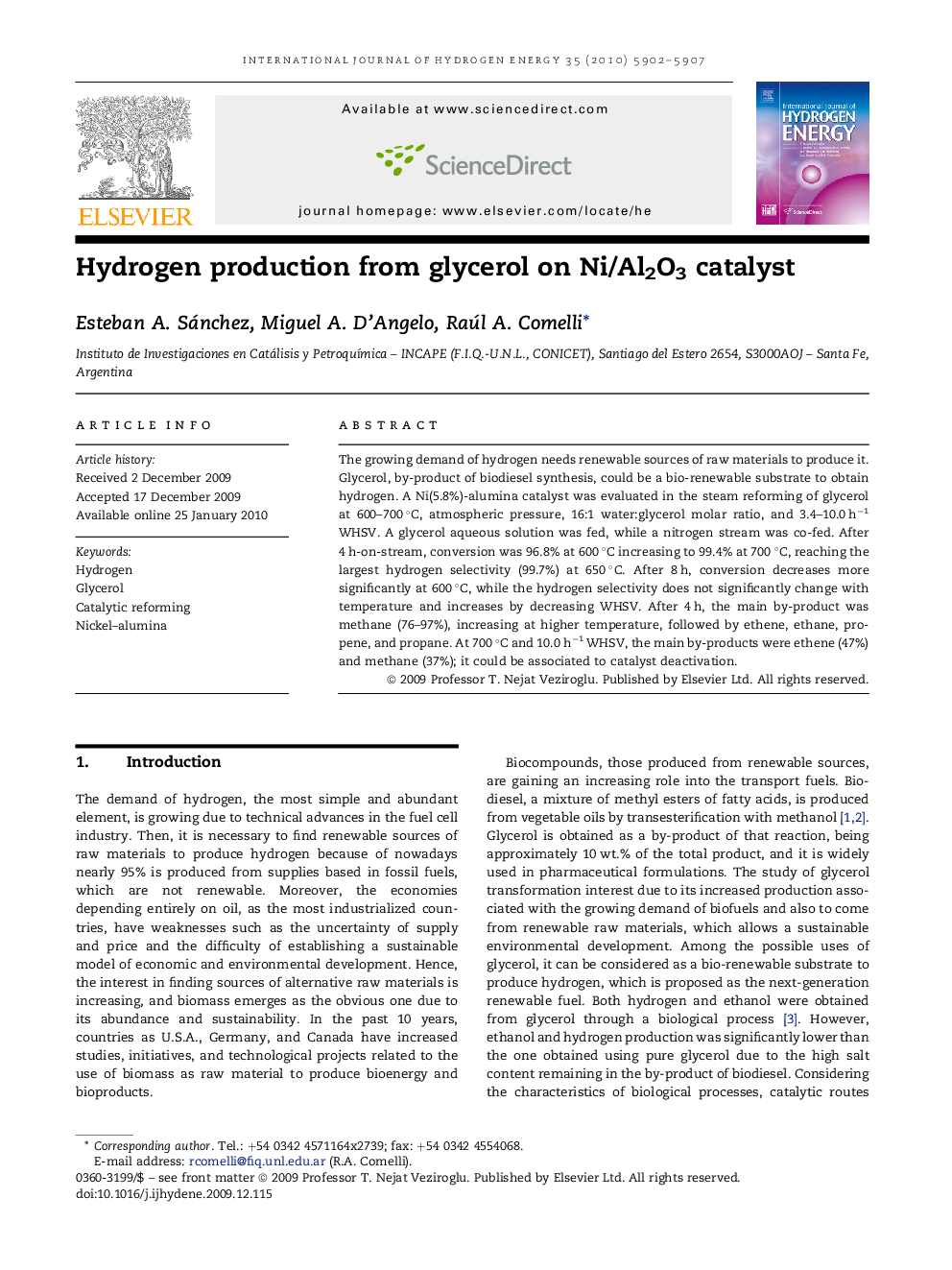| Article ID | Journal | Published Year | Pages | File Type |
|---|---|---|---|---|
| 1280625 | International Journal of Hydrogen Energy | 2010 | 6 Pages |
The growing demand of hydrogen needs renewable sources of raw materials to produce it. Glycerol, by-product of biodiesel synthesis, could be a bio-renewable substrate to obtain hydrogen. A Ni(5.8%)-alumina catalyst was evaluated in the steam reforming of glycerol at 600–700 °C, atmospheric pressure, 16:1 water:glycerol molar ratio, and 3.4–10.0 h−1 WHSV. A glycerol aqueous solution was fed, while a nitrogen stream was co-fed. After 4 h-on-stream, conversion was 96.8% at 600 °C increasing to 99.4% at 700 °C, reaching the largest hydrogen selectivity (99.7%) at 650 °C. After 8 h, conversion decreases more significantly at 600 °C, while the hydrogen selectivity does not significantly change with temperature and increases by decreasing WHSV. After 4 h, the main by-product was methane (76–97%), increasing at higher temperature, followed by ethene, ethane, propene, and propane. At 700 °C and 10.0 h−1 WHSV, the main by-products were ethene (47%) and methane (37%); it could be associated to catalyst deactivation.
